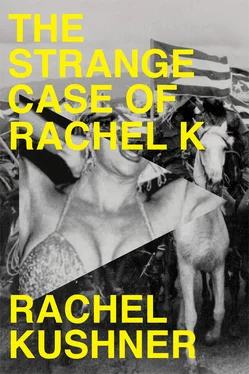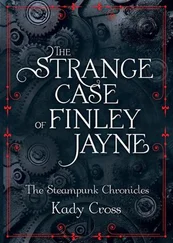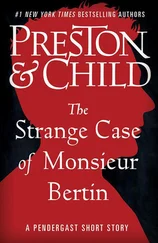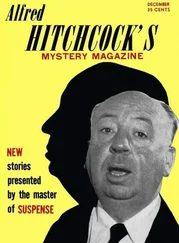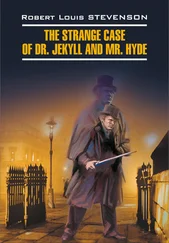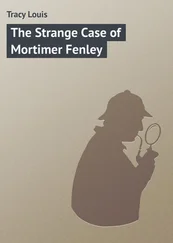An executive of the United Fruit Company, a Mr. something Stites — she couldn’t remember his first name and simply called him “you”—took her east to Oriente in his private plane. She’d been hesitant to go. He seemed like a person who was dangerous because he didn’t know which parts of him were rotten, or even that he harbored rot. “All this belongs to us,” he said, as they hedgehopped over green cane fields. “Three hundred thousand acres. Those are our boats, anchored off shore there. You see them?” Maybe he wasn’t dangerous after all, she decided. He simply wanted a showgirl to marvel over his sugar empire. They landed at company headquarters and she ran through a canopy of banana groves near the airport, trees with long, flat leaves, taller than she was and loaded with dank and heavy clusters of bananas, a strange purple flower dangling off the end of each cluster. She put her hand around a banana stalk. “They’re full of water, pure water,” the executive said. It felt like a chilled human limb with a cold pulse.
The girls had mostly left de la Mazière to himself at his lone back table, having pegged him as quirky, disinterested, and cheap. Until he got the giantess gyrating on his lap. The next evening, girls began fluttering around him. They thought he was German and kept saying, “Das ist gut, ja? Das ist gut?” De la Mazière nodded distractedly, smiled and said “Ja, gut” in his French accent. He ordered a rum drink with crushed mint and morphine crystals dissolving in a slush of ice. Sipped his drink and stole looks at Rachel K, whose white body moved past his table, her little-girl hand in the grip of some high-level politician’s. A Latin tomcat, foppish, with his white dinner jacket, his combed and polished mustache, a wristwatch whose diamonds caught the club lights and sent out angled glints. The politician had been standing in a half-circle of bodyguards, checking his watch. Waiting, as it turned out, for Rachel K. She and the politician — the president, de la Mazière later realized — disappeared into one of the special curtained booths off the Pam-Pam Room. De la Mazière distracted himself by ordering another drink. He tickled the girl on his lap, who erupted in giggles. She straddled him. Took his tinted dictator’s glasses and tried them on. Placed her hand on the crotch of this French SS officer — memoirist, minor aristocrat, dreamer of extremes. “Das ist gut?” she asked, smiling, pressing with her hand, his tinted glasses slipping down her nose. “Ja,” he replied, “gut.”
Marcel bequeathed his aunt Leonie’s couch to a bordello, and whenever he visited the place, to tease Rachel of my Lord (but never buy her services), it unnerved him to see tarts flopped on its pink crushed velvet cushions, even if there was maybe nothing more perfect and appropriate than pink velvet plush flattening under a whore’s ass. De la Mazière was different. It didn’t matter to him whether he reclined on plush furniture in the lobby of the Ritz or in a squalid St. Denis cathouse. Ate his steak at Maxim’s or at a colonial outpost in Djibouti, a backwater of salt factories and scorching temperatures on the bacterial mouth of the Red Sea. Properly seared steak is everywhere the same. A traitor satisfies his tastes, gets his high- and his low-grade pleasures wherever he can. In Havana, de la Mazière found occupied Paris all over again. Amidst its nude and adorned girls, morphine slushees and luxury hotel suites, he sensed a vague but unshakeable dread darkening the reverie and lawlessness. Despite the city’s obvious, surreal wealth, he sniffed wretched poverty. Tall and neon-pulsing casinos staking the heart of a metropolis ringed in desperation: miles and miles of neighborhoods with no electricity, no running water, and smokily typhoid trash fires. It was occupied Paris, with Americans in Cadillacs instead of Germans in Mercedes. A sultrier climate and starrier nights, purple-mouthed girls, a cinema palace with a retractable roof. They even had Obelisk and Olympia books on Calle Belga, and obsolete French pornography — not sequestered in L’Enfer, on the top floor of the Bibliothèque Nationale, but displayed at the bookstalls, their pages riffling in the damp ocean breeze.
And there was this girl, with the face of a Manouche Gypsy or German Jew. Like a drug that binds to what’s already in the wiring, she seemed formed from his own memories and longings. And yet unknowable — a cipher in pasties, painted like a doll.
Rachel K was leading President Prio, “Handsome,” she called him, as if it were his name, through the Pam-Pam Room to his own VIP booth. He was not, in truth, so handsome, but he was president and vain. She and Handsome passed the mysterious Frenchman’s table. A Frenchman who might have been, in fact, quite handsome. He seemed confident, amused, self-contained. A perfect loner. He’d been coming back, and each evening he was there, his presence distracted her, like he knew that she knew that he was watching her, though pretending not to, and his gaze colored her every movement. Just walking through the room, she was performing for an audience of one attentive Frenchman. It was strange, like he was whispering something and she could hear it even if she couldn’t translate into language what he said. She sensed a tacit agreement between them, that they would continue for some time with this ritual of him watching her and pretending not to, whispering a silent message more voluminous, airy and complex than language could transmit. She felt sure it was better to draw out the spell than risk breaking it prematurely. And anyway, she was with Handsome, her favorite of the revolving door of presidents. They sat together in a private booth, and he gave her an opal pendant and a silk dress with a secret pocket. She kissed his mustache and let him practice his soliloquies on her.
President Prio liked to have a good time. He was a man of low ambition and lofty ideals. The press ridiculed him for his expensive and ribald tastes: caviar, Russian vodka, and fourteen-carat toilet flush handles. Photos had been leaked of him and his brother Tony jumping over the lime-upholstered sofas in the Green Room of the president’s palace, in pursuit of young girls clad in short-shorts. The accompanying newspaper article told of his notorious white parties. Prio was demoralized, humiliated, persona non grata with even his own cabinet ministers. A popular radio personality, Popo de la Cruz, ranted night after night about Prio’s corruption and vanity, so that people wouldn’t forget. Tony moved to Venezuela and started a construction firm. Prio only went out in dark sunglasses, flanked by bodyguards. His wife wore a black illusion veil, had them sewn to the inside of all her pillbox hats. The two of them and the children got in and out of polished Buick limousines as quickly as they could, turning away from the photographer’s flash.
“How about a walk. An ice cream cone?” Prio said to Rachel K, the evening he gave her the pendant and the dress. They were sitting in Prio’s private booth, decorated like a Roman grotto with panorama-print Classical scenery, plaster figurines, and purple-leafed wandering Jew tumbling down the walls like ivy.
She hadn’t expected a walk, an ice cream. She’d expected, Go to the palace Green Room and cooperate fully . But his tenderness — opals, dresses, ice cream cones — was part of why she liked him best. Not because he spoiled her, but because he could be embarrassing and sentimental.
They left the club and went to nearby La Rampa, a grand avenue of deluxe sundae parlors where the rich strolled and licked. Exclusive confection boutiques that would later be replaced by an enormous State-run ice cream emporium, a concrete spaceship that gave away twenty-five thousand bowls of government-issue vanilla and strawberry every day. A drab and massive enterprise that would be the future government’s elaborate fuck you to the rich, to the presidents and their prostitutes, who’d strolled and licked along La Rampa in Havana’s diamond days.
Читать дальше
